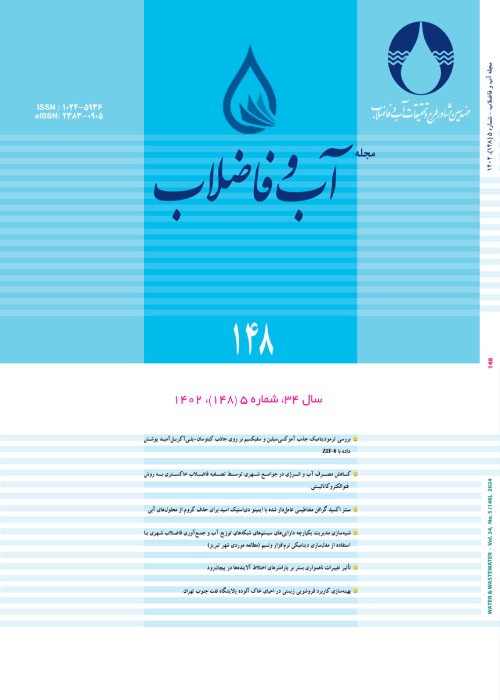Forecasting Groundwater Level under Climate Change and Water Resources Management Scenarios
Author(s):
Article Type:
Research/Original Article (دارای رتبه معتبر)
Abstract:
Groundwater is an important source of freshwater the world over, especially in arid and semiarid regions. In recent years, groundwater overextraction has led to a serious drawdown in groundwater level in many aquifers. Hence, the projecting groundwater level is essential for the planning and management of water resources in a basin scale. This study aimed to project the mean groundwater level in Najafabad Plain in central Iran. Najafabad Plain is one of the most important aquifers in the Zayandeh-Rud River basin currently facing a negative hydrologic balance, which has been aggravated by the excessive agricultural demand that has adversely affected its groundwater level. For the purpose of the study, a multilayer perceptron Artificial Neural Network (ANNs) was developed. Recently, alternative algorithms have been used for training ANNs to overcome the disadvantages of the Back Propagation (BP) algorithm that is easily stuck in local minima and slow training convergence. In this regard, the Levenberg–Marquardt algorithm as the classical method and the Particle Swarm Optimization (PSO) as the evolutionary algorithm are adopted for training the feed forward ANNs and improving their performance. The obtained results from LM-NN were then compared with those from ANN-PSO model and observed information. Comparison of the results projected by the ANN-PSO and the observed mean groundwater levels using 58 piezometric wells with monthly time steps over a 20-year period showed that the ANN-PSO model is superior to LM in predicting groundwater level. As an illustration, for models run using nine hidden neurons for Nekouabad right zones the root mean square error (RMSE) of the testing dataset for ANN-PSO was the lowest (1.50) compared to those for LM-NN (1.76). Accordingly, the ANN-PSO models are able to be used as a reliable tool for evaluating different scenarios of the water resources management in the study aquifer. Finally, three management scenarios under two climate change scenarios, A2 and B1 (obtained from GCMs), were defined and the trained ANN-PSO was subsequently used to project the effects of each scenario on the groundwater level in the plain.
Language:
English
Published:
Journal of Water & Wastewater, Volume:31 Issue: 130, 2021
Pages:
34 to 47
magiran.com/p2229552
دانلود و مطالعه متن این مقاله با یکی از روشهای زیر امکان پذیر است:
اشتراک شخصی
با عضویت و پرداخت آنلاین حق اشتراک یکساله به مبلغ 1,390,000ريال میتوانید 70 عنوان مطلب دانلود کنید!
اشتراک سازمانی
به کتابخانه دانشگاه یا محل کار خود پیشنهاد کنید تا اشتراک سازمانی این پایگاه را برای دسترسی نامحدود همه کاربران به متن مطالب تهیه نمایند!
توجه!
- حق عضویت دریافتی صرف حمایت از نشریات عضو و نگهداری، تکمیل و توسعه مگیران میشود.
- پرداخت حق اشتراک و دانلود مقالات اجازه بازنشر آن در سایر رسانههای چاپی و دیجیتال را به کاربر نمیدهد.
In order to view content subscription is required
Personal subscription
Subscribe magiran.com for 70 € euros via PayPal and download 70 articles during a year.
Organization subscription
Please contact us to subscribe your university or library for unlimited access!


